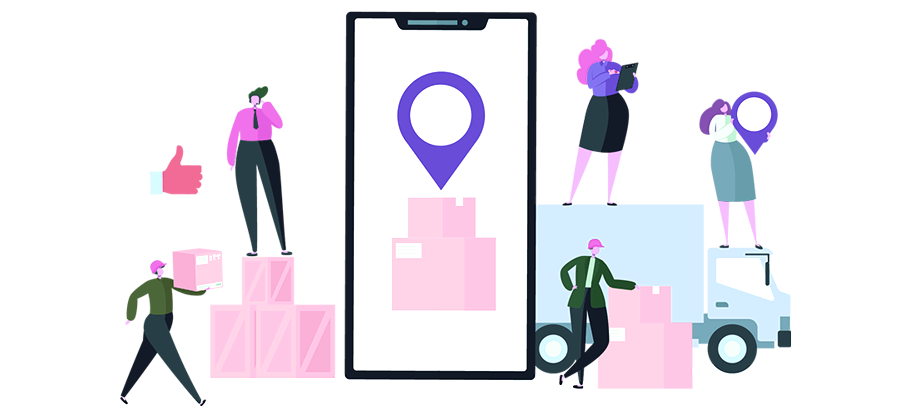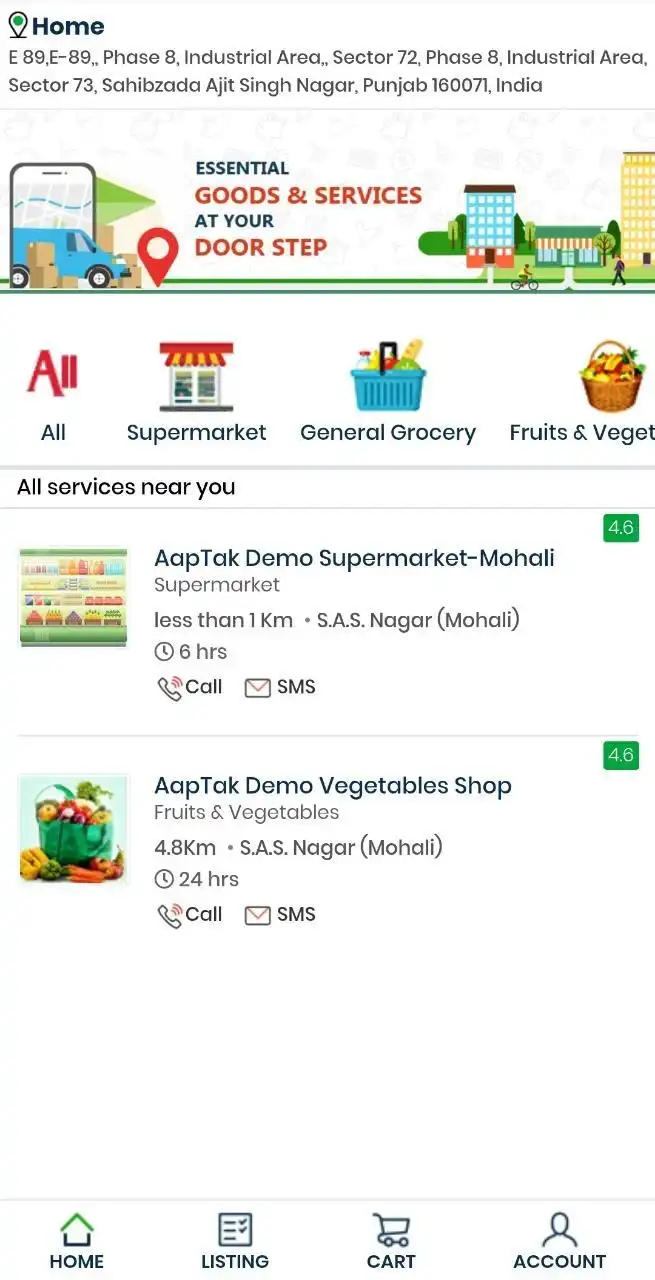





Low Cost Pickup & Home Delivery Available Integrated with Logicerp

Some of our success stories

Founder & CEO

When we stepped into the D2C business 4 to 5 years ago, the space was still evolving in India. At that time, this D2C brand operations were challenging. The snitch team preferred to do things very differently and efficiently when we foray into brick-and-mortar retail journey and we felt like pioneers without success and full-proved ERP for a D2C brand looking to bridge the gap of offline to online and online to offline (O2O) journey.
All thanks to LOGIC ERP who become our best Tech partner with advanced ERP solutions. They came forward to accept the challenges to streamline our O2O Journey. From inventory management, Omnichannel retail to real-time analytics, LOGIC ERP apparel enterprise has redefined how we operate by overcoming all challenges that come our way. With LOGIC ERP advanced ERP solution, we have successfully opened 50+ stores in India and aim to complete 100 stores soon!

Co-Founder

LOGIC ERP has really simplified our expansion journey. As we open more stores, their multi-location management system gives us full control over inventory, pricing, and promotions, all from a central dashboard. We no longer worry about stock discrepancies or system delays. Everything runs in sync, whether it’s sales data, stock levels, or vendor payments. Highly recommended for apparel brands who are looking for the best apparel retail chain software for their business!

Chief Business Officer
LOGIC ERP has been our remarkable growth catalyst. From 10 lakh to 600 crores annually, their seamless POS system and real-time reporting empowered our expansion to 100 stores all over India. Thanks to their innovative warehouse management system, our integration with Increff became seamless. Additionally, their exceptional collaboration with our omnichannel partner, Unicommerce, enhanced customer shopping experiences to new heights.

General Manager
Partnering with LOGIC ERP has transformed the way we operate at Sobhagia Sales (Sportking). Their apparel enterprise solution has streamlined our retail and manufacturing processes, making data management across our 100+ stores seamless, fast and easy. The real-time reporting and centralized system have drastically improved our efficiency, helping us reduce challenges and enhance customer satisfaction. We’re now more agile and better equipped to meet market demands. We've optimized our processes and significantly reduced downtime with apparel retail ERP solutions for enterpise, resulting in improved customer engagement and streamlined production. Their expertise has played a pivotal role in our continued success and expansion.

Director

With LOGIC ERP FMCG distribution management software, we’ve streamlined our entire supply chain from order processing to inventory tracking. LOGIC ERP has truly transformed how we manage our distribution business.
LOGIC ERP FMCG distribution and wholesale management software helped us automate every aspect of our FMCG operations - order management, warehouse control, billing, procurement, and inventory accuracy, with real-time insights that drive faster decisions and greater efficiency across our global FMCG distribution network spanning 40+ countries.

IT Head

From order management to customer experience, LOGIC ERP has raised the bar for Colobar’s cosmetics business growth. The omnichannel approach has significantly shortened delivery times & enhanced the overall customer experience.
Features like pick lists, stock aging, & warehouse automation have reduced order processing time, boosted efficiency, & lowered the rejection ratio of orders. As a result, we are now able to seamlessly deliver more orders to our third-party consumers with improved accuracy & speed.
LOGIC ERP has truly empowered us to streamline operations & scale our cosmetics distribution business effectively.

IT & HR Head

Running a business across multiple locations comes with many challenges, especially when managing different sales channels like distribution, marketplaces, online sales, and SOR. With LOGIC ERP apparel omnichannel enterprise solution, all these complexities became simple. It’s a complete solution covering production, purchase, supply chain, warehouse management, logistics, and finance.
We’ve been using LOGIC ERP since 2010, and I must say it’s a reliable solution for the apparel retail, distribution & manufacturing industry. Their team’s expertise in development, implementation, and support has kept our business updated with the latest trends.

Brand Head

LOGIC ERP has been a strong backbone & a trusted partner of Killer Jeans for 20 years. Their cloud-based retail, distribution & manufacturing software has been instrumental in streamlining our operations across 4 manufacturing units, 2 warehouses, and 100 distributors at 500+ terminals. With LOGIC ERP apparel retail software, we found a secure and cost-effective solution that helped turn our big dreams into reality.

Co-Founder & CMO

Post-COVID, our biggest challenge was bringing our online customers into our new offline stores. We had no idea where to start. That was where LOGIC ERP stepped in with omnichannel retail solutions that unified our audience whether any online customer or offline. They helped us every step of the way, from planning our operations to final execution. Now, we see more foot traffic than ever, and it’s all thanks to LOGIC ERP.
Along with, they have immensely helped us streamline omnichannel retail journeys, seamlessly unifying customer base, inventory and their shopping experiences. Now, it’s a pleasure to see our customers walk out our newly opened stores with smiles.

Co-Founder

Working with LOGIC ERP has been a turning point for The Bear House. Their apparel enterprise for retail business and omnichannel ERP solution gave us complete control over our retail and manufacturing operations, from production planning and procurement to customer loyalty and financial reporting. The flexibility and scalability of their apparel software for retailers have allowed us to expand confidently while delivering a consistent brand experience across every touchpoint. It’s a partnership that’s truly aligned with our vision for apparel business growth.

Managing Partner

Partnering with LOGIC ERP has completely transformed our FMCG distribution operations across 40+ countries. With LOGIC ERP FMCG software solutions, we now have real-time visibility and barcode-based inventory control across our 4 manufacturing units & 3,500 distributors.
Their FMCG distribution and wholesale business management software has streamlined the billing process, eliminated stock mismatches, improved order accuracy, and brought complete transparency into our FMCG supply chain. Highly recommended ERP software for FMCG distribution management businesses!

Sales & Planning

With LOGIC ERP, managing our entire retail ecosystem from supply chain to store launches, has become incredibly smooth. We can set up multiple new stores instantly, without any technical hassle. The real strength of apparel retail ERP software lies in its robust merchandising and reporting tools, which help us plan better and act faster. It’s truly built for the demands of the apparel and footwear industry.
LOGIC ERP has truly transformed the way we operate. The single database solution has made end-to-end supply chain management incredibly smooth and transparent. What stands out the most is how easy it is to open new stores, whether one or multiple at the same time. It’s literally a click-and-go process, with no need for complex installations or downtime. Everything is standardized, which reduces errors and accelerates our expansion plans. LOGIC ERP apparel enterprise solution is truly an asset for any apparel and footwear retailer looking to streamline operations and grow sustainably.

CFO

Getting the LOGIC ERP cloud platform has revolutionized how we manage our business. With real-time sales data at our fingertips, we’re able to make faster, smarter decisions, whether it’s launching promotions or optimizing pricing, resulting in stronger revenue and smoother operations.
What sets LOGIC ERP apart is its flawless integration with our SAP backend. Even while running two systems, data flows seamlessly without any glitches in reporting or finance. Their warehouse management system keeps our inventory levels precise and reorder processes efficient.
Thanks to LOGIC ERP cloud software implementation and seamless integration, our team is more agile, proactive, and ready to scale in today’s fast-paced market.
Stay Updated with LOGIC ERP – Retail, Distribution, WMS & Manufacturing Software Insights!

Explore the top benefits of using advanced supermarket POS, billing, and inventory software to streamline operations, prevent stockouts, and enhance customer experience. Book a free demo!

Discover a complete step-by-step checklist on how to start a supermarket business in India in 2026, covering licenses, store setup, inventory planning, staffing, billing software, marketing strategies & financial requirements.

Looking for a way to manage your supermarket efficiently? Get LOGIC ERP supermarket software to simplify inventory, sales, billing, and staff management on a single platform today!

Wondering how to track your top-selling products effectively? Get LOGIC ERP supermarket POS software to monitor sales trends, identify bestsellers, & make informed business decisions today!

Looking to reduce supermarket operational costs? LOGIC ERP billing software streamlines billing, inventory, and staff management, helping supermarkets save time, and improve overall efficiency.

LOGIC ERP supermarket software streamlines supplier coordination, automates purchase orders, and ensures timely stock replenishment, improving efficiency and reducing errors. Book a free demo today!

LOGIC ERP supermarket software helps forecast demand, optimize inventory, and plan stock efficiently, ensuring you meet customer needs without overstocking or losses. Get free business consultation today!

Want to automate your supermarket operations? Get supermarket and POS software to digitize your operations by streamlining billing, inventory management, staff coordination, and purchase orders today!

The best supermarket billing software helps you manage loyalty programs, track purchase patterns, and automate personalized offers, driving customer retention and increased revenue effectively.

LOGIC ERP software helps supermarkets and hypermarkets increase revenue by streamlining inventory management, sales tracking, billing, and staff coordination. Book a free demo today!

LOGIC ERP grocery software empowers retailers with data-driven insights, helping optimize inventory, track sales trends, and make informed business decisions. Get free business consultation today!

LOGIC ERP grocery retail chain software helps growing grocery chains manage multiple locations efficiently by streamlining inventory, billing, POS, and staff operations on one platform.

Discover how advanced supermarket billing and POS software helps reduce checkout time by 50%. Learn how the best POS system for supermarkets boosts speed, accuracy, and customer satisfaction.

Unlock omnichannel success with advanced supermarket ERP software. Learn how real-time inventory and integrated accounting features streamline operations and boost profitability in modern retail.

Discover top 10 best features of LOGIC ERP supermarket software. From real-time inventory to fast billing and multi-store management, explore how this ERP for supermarkets simplifies retail operations.

Discover why supermarkets need an integrated POS, inventory, and accounting system to improve billing speed, reduce stock errors, automate finances, and streamline daily store operations.

Learn why LOGIC ERP stands out as the top supermarket POS software with real-time inventory tracking, integrated accounting, faster checkout, and advanced retail automation.

Discover key factors to consider when selecting supermarket billing software, including POS features, inventory syncing, multi-store support, and reporting tools. Book a free demo now!
Most Common Questions asked by our Clients
Supermarket Billing Software is a software application which helps Supermarkets to opt for digitation of their records, reduce manual paperwork and run the businesses efficiently. Supermarket Retail ERP Software also provides keen insights into your business, which helps you in taking timely decisions which result in cost saving and reducing overheads. Supermarket POS Software helps the business maintain accurate and fast billing, inventory, expiry, orders, schemes and discounts, CRM and loyalty management, home delivery app, accounting, GST E-Filing and detailed reporting, and insights into your business.
Supermarket Billing Software is mostly used by Supermarkets, Departmental Stores, Hypermarkets, Kirana Stores etc. dealing in FMCG retail. The number of SKU`s or products currently in the market is huge and to manage these manually is quite a tedious task. There is also the management of expiry, dead and slow-moving stock, discounts, and schemes offered by the companies, shortages and pilferage, timely replenishment of stock which can only be done through a proper Supermarket Software.
The benefits of powerful Supermarket Billing Software can have huge benefits for your business. It can bring many efficiencies into your business which may result in cost saving, reducing wastage, customer satisfaction, and an increase in business through timely replenishment of your inventory or stock. Some of the main benefits can be listed as below:
To choose the right Supermarket POS Software one needs to be aware of the following things:
We at LOGIC ERP strive to achieve all the things listed above. Some of the important points about why you should choose LOGIC ERP Supermarket Billing Software are summarized as under:
Supermarkets use Retail ERP software that includes:
A Supermarket Retail Software Solution is an ERP + POS system that helps manage all aspects of supermarket operations, from billing and inventory to accounting and customer engagement. LOGIC ERP | the best retail software solution for supermarkets enables:
With LOGIC ERP retail chain management software, supermarkets can streamline operations, reduce manual work, and enhance customer satisfaction, making it the best supermarket POS solution for modern retail businesses.
LOGIC ERP is the best supermarket retail software solution, offering fast billing, inventory management, GST-ready accounting, loyalty programs, and real-time reports. It is the top choice for single stores and supermarket chains, with omnichannel support and easy scalability.
LOGIC ERP is the best supermarket retail software because it offers a complete solution for managing billing, inventory, accounting, loyalty programs, and multi-store operations, with GST-ready features, real-time analytics, and omnichannel integration, helping supermarkets improve efficiency, reduce losses, and increase profitability.
Trusted by leading retailers, LOGIC ERP retail chain management software for supermarkets is scalable, easy to use, and built to meet the unique needs of grocery and supermarket businesses.
Supermarket billing software is an all inclusive ERP & POS solution that automates billing, GST invoicing, inventory tracking, and customer management in grocery stores. It reduces errors, speeds up checkout, and simplifies store operations.
Supermarkets need a supermarket billing system to streamline daily operations, improve billing accuracy, and enhance customer experience. Manual billing is time-consuming and prone to errors, especially during peak hours. A smart billing system automates invoicing, applies discounts, tracks inventory in real-time, and generates GST-compliant bills.
With features like barcode scanning, loyalty management, and real-time sales reporting, a supermarket billing software helps retailers save time, reduce losses, and make informed business decisions. That is why modern supermarkets choose LOGIC ERP | #1 retail billing solution for grocery and supermarket businesses.
A supermarket billing system automates the entire checkout process to ensure speed, accuracy, and customer satisfaction. Here are the key steps involved in supermarket billing:
Barcode Scanning of Products
Each product is scanned using a barcode scanner, pulling item details and pricing directly from the billing software.
Automatic Price and Discount Calculation
The supermarket billing software automatically applies relevant offers, discounts, and loyalty points, ensuring accurate pricing.
GST and Tax Calculation
GST and other applicable taxes are calculated in real-time, ensuring fully compliant and tax-ready invoices.
Customer Data Entry (Optional)
For loyalty programs, personalized offers, or credit purchases, customer details can be added during billing.
Invoice Generation
A detailed, GST-compliant bill is generated instantly, which can be printed or sent via SMS/email.
Payment Processing
The system supports various payment modes including cash, credit/debit cards, UPI, wallets, and split payments.
Inventory Update
Stock levels are automatically updated after every transaction, helping maintain real-time inventory accuracy.
Sales Reporting and Analytics
Each sale is logged for daily reports, performance tracking, and business insights, all accessible through the software dashboard.
Investing in the right supermarket billing software can greatly enhance the efficiency and profitability of your retail business. It simplifies daily operations, reduces manual errors, and improves the overall customer experience. Here are the top benefits of using supermarket billing software:
Fast Billing and Checkout
Speed up transactions with barcode scanning, automatic pricing, and multi-mode payment support, reducing customer wait time.
Real-Time Inventory Management
Track stock levels automatically after each sale, manage reordering, and avoid stock shortages or overstocking.
GST-Compliant Invoicing
Easily generate accurate, GST-ready bills with automatic tax calculations, ensuring complete compliance and transparency.
Customer Loyalty Management
Capture customer data, manage loyalty points, and run personalized offers to build long-term relationships.
Detailed Sales Reports and Analytics
Access real-time insights on sales trends, top-performing products, and overall store performance to make informed decisions.
Multi-Store and Franchise Management
Manage multiple outlets from a centralized system, monitor performance across locations, and streamline operations.
Secure and Error-Free Operations
Minimize billing mistakes, prevent fraud, and maintain a smooth, transparent, and secure checkout process.
Yes, LOGIC ERP Supermarket Billing System seamlessly integrates with a wide range of third-party software and tools to enhance retail operations and ensure flexibility.
Key Integrations Include:
Accounting Software
Integrates with leading accounting platforms for smooth financial management and GST compliance.
eCommerce Platforms
Sync your supermarket inventory and orders with popular online platforms for unified omnichannel retailing.
Payment Gateways & POS Devices
Supports integration with various POS machines, digital wallets, UPI, and card payment gateways.
Weighing Scales & Barcode Printers
Compatible with electronic weighing machines and barcode devices for accurate billing and inventory tracking.
CRM and Loyalty Tools
Easily integrates with customer relationship tools to manage loyalty programs, feedback, and targeted marketing.
Tally, SAP & Other ERP Systems
LOGIC ERP can connect with other ERPs for data migration, reporting, and cross-platform operations.
SMS & Email Gateways
Send invoices, promotional messages, and alerts directly to customers via SMS or email.
To run a supermarket efficiently, supermarket POS software must integrate smoothly with essential hardware devices. These hardware integrations help automate tasks, reduce manual errors, and enhance the customer experience at checkout.
Key Hardware Integrations for Supermarket Software:
Barcode Scanners
For quick and accurate product identification and faster billing.
Thermal Receipt Printers
To generate printed invoices for customers with item-wise and GST details.
Weighing Scales
Integrated digital weighing scales for items sold by weight, such as fruits, vegetables, and groceries.
Touchscreen POS Terminals
For intuitive billing interfaces and faster transaction processing.
Cash Drawers
Securely store and manage cash transactions during checkout.
Customer Display Screens
To show real-time billing information to customers during checkout.
Barcode Label Printers
For generating product and shelf labels with barcodes for easy scanning.
Card Swipe Machines / Payment Terminals
Integrated payment devices for debit/credit cards, UPI, and wallet transactions.
Fingerprint Scanners / Biometric Devices
Used for secure employee logins and attendance tracking.
UPS / Power Backup Systems
To ensure uninterrupted billing operations in case of power outages.
Choosing the right supermarket POS software is essential for smooth billing, inventory control, and customer satisfaction. Different types of POS systems are designed to meet the varied needs of small grocery stores, large supermarkets, and retail chains.
Here are the most common types of supermarket POS software:
Cloud-Based POS Software
This POS system runs on the cloud, allowing real-time access to sales, inventory, and reports from any location. LOIC ERP cloud POS software is the best fit for multi-store supermarket chains.
On-Premise POS Software
Installed locally on the store’s computer system, this type offers better control and performance without internet dependency. Best for standalone supermarkets with stable infrastructure.
Mobile POS (mPOS)
Mobile-based POS that works on tablets or smartphones. Useful for billing on the go, queue management, and small-format grocery stores.
Self-Checkout POS Systems
It allows customers to scan and pay for their items independently, reducing waiting time and improving the checkout experience in high-footfall supermarkets.
Integrated POS with ERP Functionality
Supermarket POS + ERP software combines billing, inventory, accounting, and customer management into one platform. Perfect for supermarkets seeking complete automation.
Omnichannel POS Systems
Supports both offline and online sales, syncing orders, stock, and customer data across platforms. Ideal for supermarkets with eCommerce stores or delivery apps.
start by creating masters for items, customers, suppliers, and taxes in LOGIC ERP supermarket retail software with billing, POS, GST, accounting and inventory module.
LOGIC ERP supermarket retail store software for billing provides a powerful offer management system that lets retailers create customized discounts, combos, and schemes to boost sales and clear inventory. LOGIC ERP retail software with loyalty program supports loyalty programs with point accumulation and redemption across all outlets, ensuring a unified and rewarding customer experience. With built-in CRM tools, retailers can segment customers, send personalized promotions via SMS or WhatsApp, and drive repeat purchases effectively.
LOGIC ERP Supermarket POS software ensures super-fast checkouts with two-times faster billing, seamless barcode and weighing scale integration, and flexible payment options. Features like multiple tender modes, bill hold and recall, and real-time inventory sync help retailers serve more customers quickly and efficiently.
Yes, LOGIC ERP supermarket retail chain software helps to efficiently manage multi-store supermarket chain operations with centralized purchasing, inventory control, and sales management. It enables real-time data syncing across all outlets, ensuring consistent pricing, stock visibility, and complete business control from a single platform.
Yes, with LOGIC ERP supermarket reporting software, you can monitor your supermarket's performance anytime, anywhere through real-time dashboards and mobile access. Get retail analytics for supermarkets to track sales, inventory, staff performance, and customer trends remotely, enabling faster decisions and better control over your business.
LOGIC ERP supermarket billing POS software with inventory management helps manage perishable inventory with batch-wise tracking, expiry date alerts, and FIFO (First-In-First-Out) inventory control. It enables supermarkets to monitor stock shelf life, minimize spoilage, and reduce wastage by automating reorder decisions and timely stock clearance through offers and promotions.
Yes, LOGIC ERP supermarket software with inventory management offers smart inventory tracking and automated reordering based on sales trends and minimum stock levels. The system identifies fast-moving items, triggers auto-replenishment, and ensures you always have the right stock at the right time, reducing stockouts and maximizing sales.
LOGIC ERP is trusted by top supermarket retailers for its fast, accurate, and GST-compliant billing system that works seamlessly across multiple counters and locations. LOGIC ERP supermarket billing software offers fast and GST-compliant billing, barcode scanning, real-time inventory updates, multi-counter support, loyalty program integration, customizable promotions, and advanced sales reporting, providing an all-in-one powerful solution for supermarket retailers.
Supermarket retail chain software is an integrated ERP & POS solution that helps to manage operations across multiple supermarket outlets, including inventory, billing, procurement, and customer management. This retail chain software helps to centralize control, provides real-time data insights, and supports seamless operations across all store locations. It helps supermarkets enhance efficiency, reduce costs, and deliver a consistent customer experience.
Supermarket multi-store software enables centralized inventory control across all outlets, ensuring accurate stock tracking and real-time updates, reducing stockouts and overstocking with automated reordering and demand forecasting.
LOGIC ERP supermarket multi-store software seamlessly manages operations across all store locations with real-time data sync. It centralizes sales, inventory, pricing, and performance tracking to help retail chains scale efficiently.
Yes, LOGIC ERP for supermarkets supports barcode billing and POS integration, enabling fast, error-free billing using barcode scanners and works seamlessly with POS hardware like printers and weighing scales. This #1 ERP and POS software for supermarkets and retail chains ensures smooth checkouts and real-time inventory updates.
LOGIC ERP online supermarket retail chain software offers real-time synchronization of sales, inventory, and financial data across multiple store locations, ensuring consistency and accuracy. With LOGIC ERP multi-store retail software, supermarket owners can easily manage pricing, monitor store-wise performance, and make informed decisions based on unified business insights.
The system supports centralized billing, inventory tracking, and reporting, making it the best multi-store retail management software for growing supermarket chains. By automating routine processes and maintaining data integrity across outlets, LOGIC ERP empowers retailers to operate more efficiently and scale their businesses with confidence.
Yes, LOGIC ERP Supermarket CRM Software is equipped with powerful reporting tools that deliver real-time sales and financial insights for smarter business decisions.
With LOGIC ERP, supermarkets can:
Designed for modern retail businesses, LOGIC ERP online supermarket retail chain software helps supermarket chains gain complete visibility into their financial health, enabling faster, more informed, and data-driven decisions.
Yes, LOGIC ERP supermarket retail software with inventory management fully supports home delivery and online order management. It seamlessly integrates with leading e-commerce platforms and delivery service providers to offer smooth omnichannel operations.
With LOGIC ERP supermarket inventory management software, you can:
This integration enables supermarkets to offer a consistent and efficient shopping experience, both online and offline.
Yes, LOGIC ERP Supermarket Retail Chain Software offers security features to ensure complete protection of your business data.
The system includes:
LOGIC ERP multi store software and supermarket chain management system ensures that every transaction and business activity is protected, providing peace of mind and maintaining the integrity of your supermarket operations.
The best POS software for supermarkets in 2026 is LOGIC ERP supermarket POS software. It offers advanced billing, inventory control, multi-store management, GST-ready accounting, and customer loyalty tools, all in one platform. Developed for supermarkets, hypermarkets, and department stores, LOGIC ERP ensures faster checkouts, real-time insights, and seamless integration with ERP and online channels.
Supermarket POS software automates checkout, tracks sales, manages inventory, and syncs data across counters or stores. LOGIC ERP supermarket POS connects billing, inventory, and accounting modules, ensuring every transaction updates your stock and financial reports instantly.
Supermarket inventory management software helps retailers track stock levels, manage reorders, monitor expiry dates, and control shrinkage. LOGIC ERP provides AI-powered inventory tracking, automated purchase orders, and real-time visibility across multiple locations, preventing overstocking or stockouts.
Supermarket POS software simplifies billing, improves speed, ensures accuracy, and provides analytics to improve decision-making. With LOGIC ERP supermarket software, retailers can manage customers, sales, suppliers, and stock all from one dashboard, automating work, and increasing profitability.
LOGIC ERP stands out for its all-in-one retail ERP capabilities: combining POS, accounting, GST, loyalty programs, CRM, and analytics. It’s trusted by thousands of leading supermarkets and grocery retailers across India for its reliability, speed, and scalability.
Yes. LOGIC ERP supermarket retail software supports multi-store management, allowing owners to control inventory, pricing, offers, and analytics for multiple outlets from a single centralized dashboard.
A supermarket retail ERP software connects POS, accounting, inventory, and supply chain operations. LOGIC ERP software for supermarkets streamlines retail processes and ensures accurate, real-time business data across all departments.
Supermarket POS software handles front-end billing and sales, while ERP software manages back-end operations like accounting, inventory, and procurement. LOGIC ERP combines both to provide a unified supermarket retail ERP system for complete automation.
LOGIC ERP supermarket POS system is India’s top choice for GST-ready billing, e-invoicing, and tax reporting. It ensures compliance, accuracy, and effortless financial management.
Yes. LOGIC ERP supermarket software seamlessly integrates with eCommerce platforms like Shopify, WooCommerce, and custom online stores, enabling omnichannel retail management.
LOGIC ERP ensures enterprise-grade security with encrypted data, role-based access, automatic backups, and cloud protection, safeguarding all your business information.
LOGIC ERP evolves with AI analytics, IoT-based inventory, cloud APIs, and omnichannel capabilities, helping supermarkets and grocery stores stay ahead in the digital era.
When selecting POS or ERP software, look for fast billing, inventory tracking, GST compliance, cloud access, accounting integration, and scalability. LOGIC ERP offers all these features in one platform.
You can request a free demo at www.logicerp.com. LOGIC ERP experts will walk you through features like POS, retail automation, and ERP integrations. Call at +91-73411-41176 or send us an email at sales@logicerp.com to book a free demo for supermarket POS software today!
LOGIC ERP POS software is #1 choice for supermarkets, hypermarkets, mini marts, organic stores, kirana shops, FMCG retailers, and wholesale distributors.
Yes. LOGIC ERP software for supermarkets offers cloud-based POS and ERP software, enabling store owners to access reports, manage pricing, and monitor performance from anywhere.
LOGIC ERP enhances customer satisfaction with fast billing, personalized loyalty rewards, digital receipts, and real-time promotions, offering a modern shopping experience.
With 30+ years of expertise, LOGIC ERP is trusted by 10,000+ retailers in India. It provides stability, scalability, and innovation, making it the most reliable POS ERP for 2026 and beyond.
LOGIC ERP offers flexible pricing based on business size, modules, and deployment model. Contact the sales team or request a quote at www.logicerp.com. Call at +91-73411-41176 or send us an email at sales@logicerp.com to book a free demo today!
Yes. LOGIC ERP software for supermarkets provides mobile apps for billing, sales tracking, and analytics, allowing store owners to manage operations directly from their smartphones.
LOGIC ERP is the best supermarket POS software for retailers that offers fast billing, real-time inventory tracking, GST compliance, and seamless integration with accounting and loyalty programs. LOGIC ERP stands out as the best supermarket POS software in India, trusted by leading grocery chains and supermarkets for its AI-powered automation, multi-store management, and accurate reporting. Whether you run a single outlet or a supermarket chain, LOGIC ERP’s all-in-one solution ensures smooth operations, accurate billing, and better business decisions.
LOGIC ERP is ranked as the #1 supermarket POS software because it simplifies every aspect of grocery retail from billing, inventory management, pricing, and promotions to GST return filing and multi-store control.
Its AI-powered grocery POS software provides retailers with:
These advanced point of sale features makes LOGIC ERP #1 supermarket POS for retailers who want to automate supermarket operations and deliver an exceptional customer experience.
LOGIC ERP is the top choice supermarket POS software because it combines advanced billing accuracy with advanced inventory control.
Here’s what sets it apart:
Centralized inventory visibility across multiple branches.Retailers prefer LOGIC ERP because it helps them reduce operational costs, prevent stock losses, and increase billing efficiency, making it the ultimate grocery POS and inventory management software in 2026.